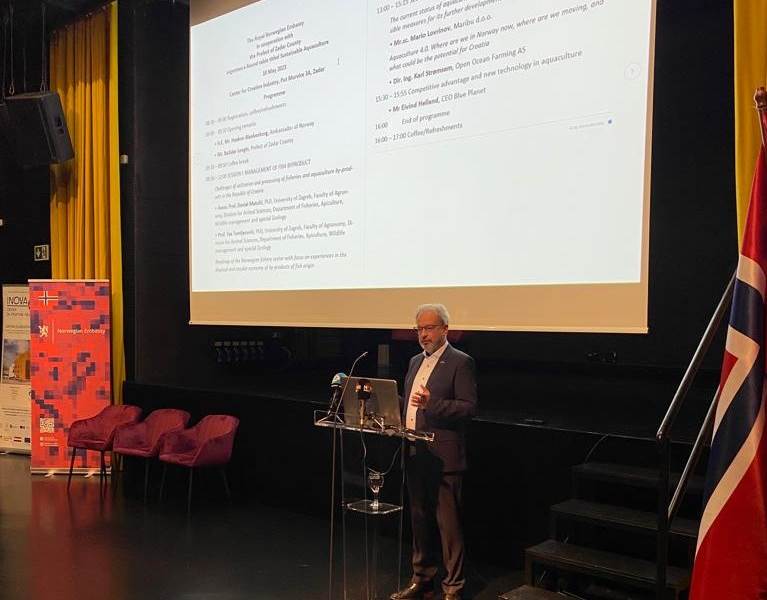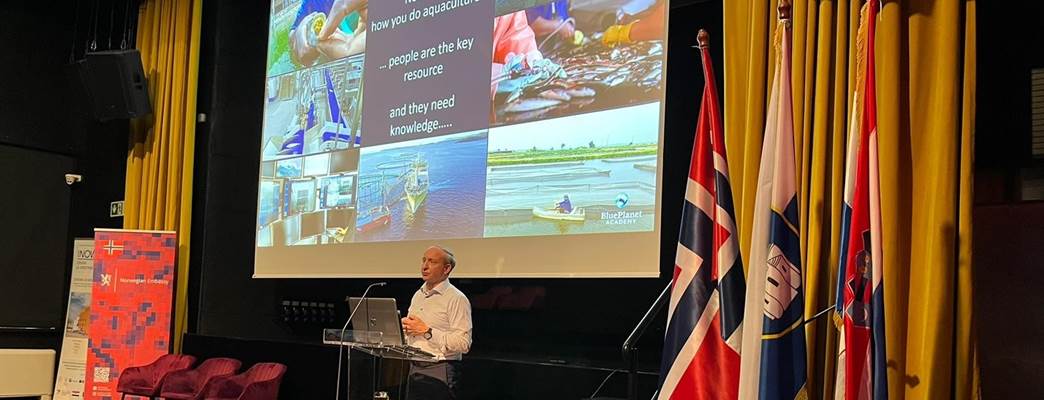As a world leading country in the marine industries, it is safe to say that Norway is powered by nature. Likewise, Croatia is economically and historically dependand on the sea. Working together in finding sustainable solutions to fish farming brings benefits to both countries.
This was the driving force behind the conference organised in Zadar this May. The latest trends in sustainable aquaculture, including the development of sustainable fish feeds, the use of new technologies for monitoring fish welfare and environmental impact, and best practices for minimizing waste and pollution were some of the topics. Participants also discussed market opportunities for sustainable aquaculture products.
"There was no question at all where we would hold this conference, because we know that Zadar County is the leader of Croatian fisheries and aquaculture, so the choice was very simple," said H. E. Haakon Blankenborg, Norwegian Ambassador to Croatia.
He emphasized that Croatia and Norway have many things in common, and aquaculture is one of the industries in which they are among the best in Europe. However, they can still learn a lot from each other.
One way to so was though the conference, which aim was tofurther strengthen collaboration and cooperation between Croatian and Norwegian companies in this area. Particular emphasis was placed on sustainable solutions for fish farming that benefit both the economy and the environment.
"In this workshop, we focused on the latest trends and innovations in aquaculture, but also on supporting infrastructure and logistics. The new dimensions of aquaculture aim to minimize environmental impacts while increasing productivity and profitability," Blankenborg said, stressing the importance of good management of by-products that are mostly discarded after fish processing.
Prefect Longin followed up on his words and announced that Zadar County, through the SAFE project funded by Bilateral Fund of the Grants, in which partners from Norway also participate, plans to create an innovative solution for fish by-products.
"Through this project, data on fish industry by-products will be collected in order to finally establish a factory for the treatment of fish waste and fishmeal production within the future Waste Management Center, as the first of its kind in Croatia", said Longin.
The project SAFE is implemented in partnership with NOFIMA and Sintef Ocean and was one of the project funded by open call on Green Transition, under the Bilateral Fund of the EEA and Norway Grants.

About the conference
Two specific topics were tackled at the conference. The 'Management of Fish Byproduct,' was the first one. It shed light on the importance of utilizing the discard and byproducts of fish processing and how it can benefit the fishing industry.
The second topic was 'Innovative & New Dimension of Aquaculture,' where the latest trends and advancements in aquaculture were explored, including the question on how can we help meet the growing demand for seafood while minimizing environmental impacts.
The round table discussion followed and provided a platform for networking and sharing of experiences among participants, with a view to identifying new business opportunities and partnerships in the field of sustainable aquaculture. The panel participants were representatives from the aquaculture industry, environmental organizations, academia, and government officials from both countries. The conference serveed as an opportunity for exchanging best practices, networking, and exploring potential collaboration in the field of sustainable aquaculture.
